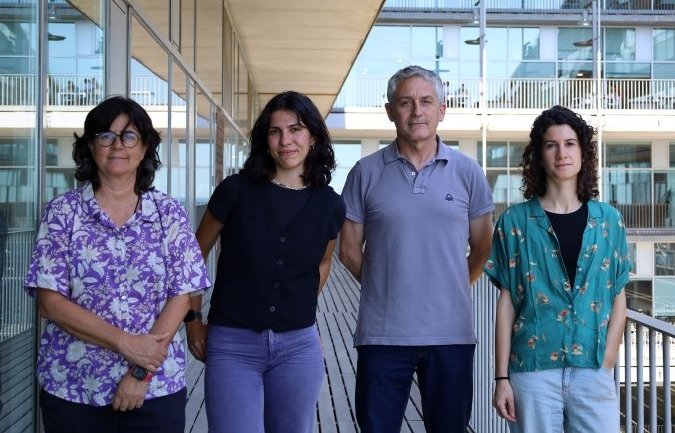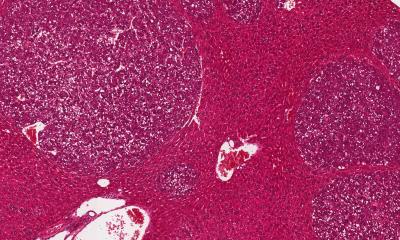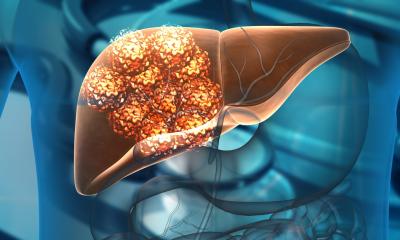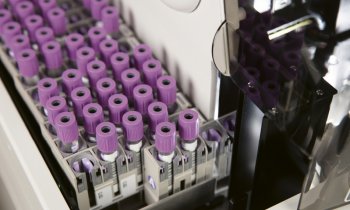© magicmine – stock.adobe.com
News • Focus on microproteins
Researchers find potential target for liver cancer vaccine
A new study identifies a set of microproteins that are exclusively produced in liver tumors. This makes them a clear target for immune system cells and a potential target for cancer vaccine development.
The study, led by the Hospital del Mar Research Institute, with Cima University of Navarra and Pompeu Fabra University, has identified a group of small molecules exclusive to liver tumors that could be key to developing cancer vaccines. These are microproteins, very small proteins expressed only by tumor cells. This can result in the activation of immune cells against the tumor. The study is published in Science Advances.
By integrating data from tumors and healthy tissue from over one hundred liver cancer patients, the researchers identified this set of microproteins. These small molecules are generated from genes that were previously thought incapable of encoding proteins. “In recent years, there has been increasing attention to this group of genes, which, due to their short length or low expression, were considered non-coding. New techniques have revealed that some of these genes can indeed produce small proteins”, says Mar Albà, an ICREA researcher at the Hospital del Mar Research Institute. This discovery was made possible through a combination of computational techniques such as transcriptomics, translatomics, and proteomics, along with laboratory experiments aimed at studying the immune response.

Image source: Hospital del Mar Research Institute
The development of cancer vaccines relies on the immune system's ability to recognize foreign molecules that are not part of the body. Mutations in cancer cells generate foreign peptides that alert the immune system. However, the challenge lies with cancers that have low mutation rates, such as liver cancer. Studying microproteins, which were previously difficult to detect, offers an alternative. “This study shows that there is a significant number of microproteins exclusively expressed in tumor cells that could be used to develop new treatments”, explains Marta Espinosa Camarena, a researcher at Hospital del Mar Research Institute.
“We have seen that some of these microproteins can stimulate the immune system, potentially generating a response against cancer cells. This response can be enhanced with vaccines, similar to the coronavirus vaccines, but producing these microproteins. These vaccines could stop or reduce tumor growth”, says Puri Fortes, a researcher at CIMA and CIBERehd. Unlike other types of vaccines based on patient-specific mutations, this treatment could be used in multiple people, as the same microprotein is expressed in various patients.
Administering these vaccines could be relatively simple, although research for their application has not yet begun. “That is our goal”, the researchers indicate.
Source: Hospital del Mar Research Institute
11.07.2024











